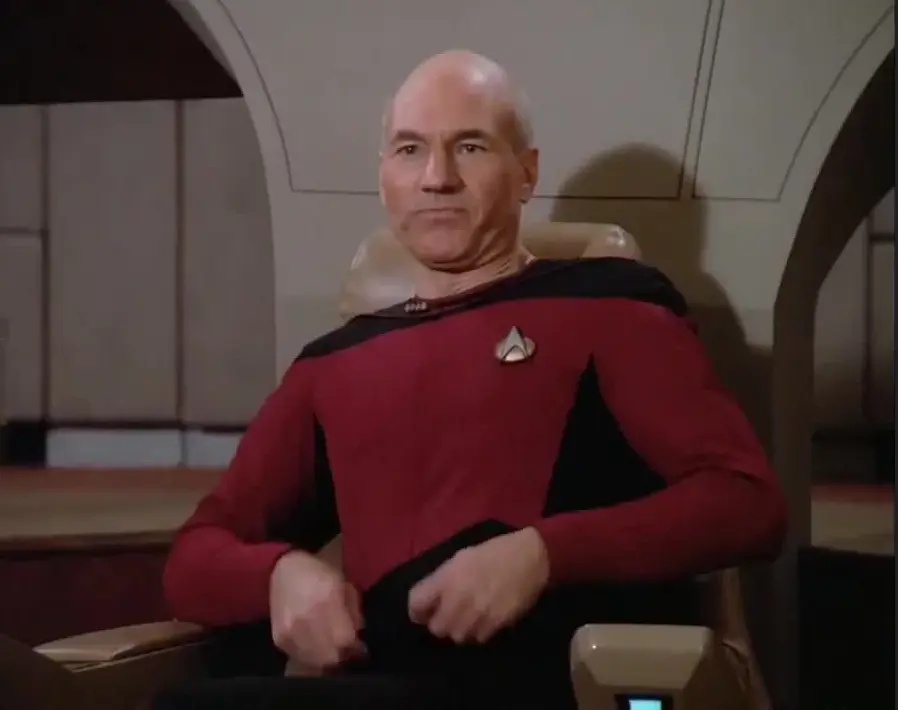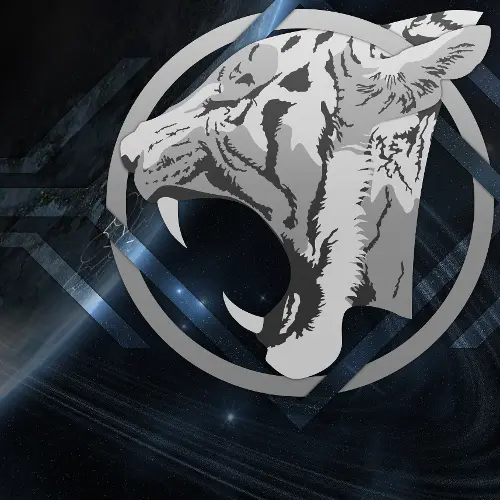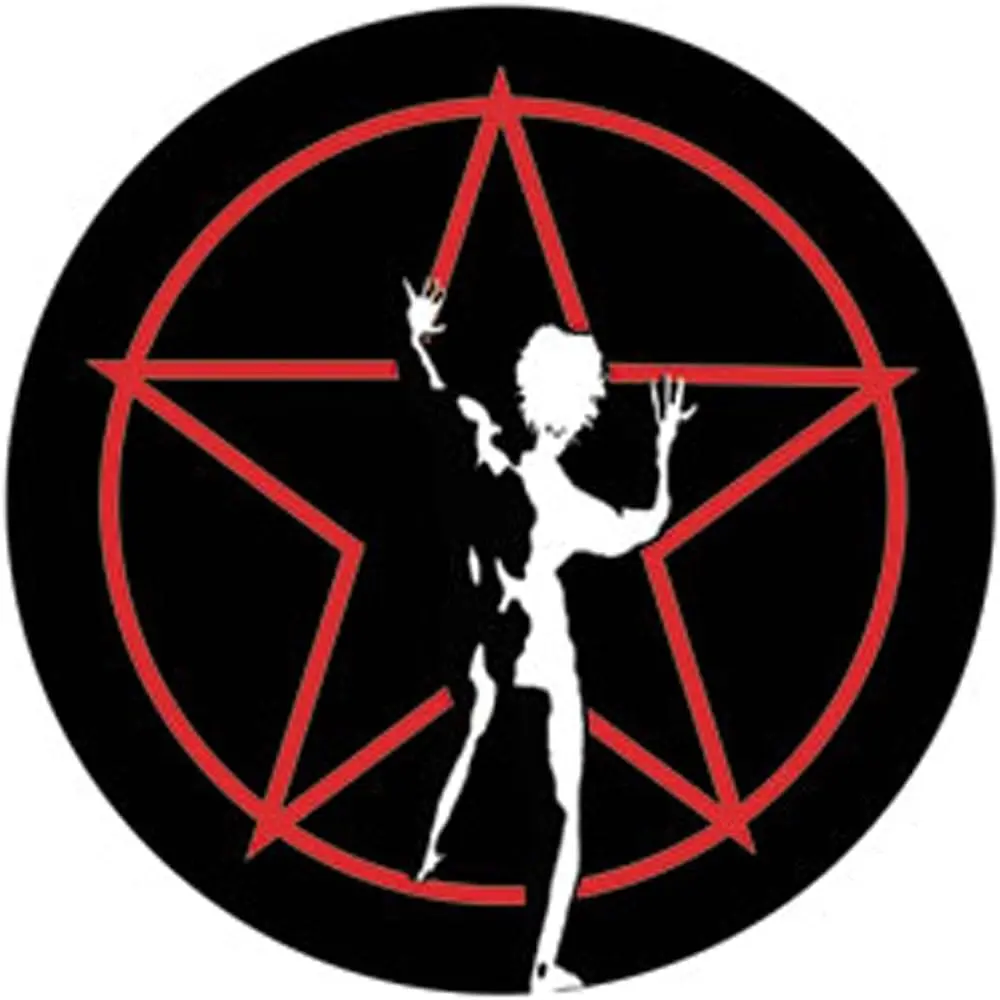I like to think Elves go on an adventure at around age 70-90, get really super cool, take 100 years off, and then completely forget all their amazing skills because they’ve been learning the language of bees or doing sequoia trimming as a hobby for the last century.
Would be a cute fluffy class feature to just assign the very old elf an exceptionally difficult but totally useless skill at near-master level, to help explain why the Legendary Warrior of Old is now swinging for the minor leagues.
I do like the idea that elves just change their entire lifestyle every hundred years or so. They spend 80 years as a warrior, then decided to take up magic and became a wizard for the next 80 years.
I also like the idea of a human village that accidentally built 4 statues of the same elf who kept saving them with different skills.
Kinda-sorta the premise of the anime Frieren.
Both the anime and the manga are fantastic.
There’s a series of books called The Legend of Drizzt last time I checked (it’s changed over the years, and the first book wasn’t even supposed to be about him lmao) and in one of the books, our main character believes he has lost all his friends (not a spoiler, we already know who is okay and who isn’t when he thinks this) and so he goes off alone into the mountains to kill orcs and goblins and shit until he maybe dies. A couple of elves way older than him meet him at one point, and since this is really the first time he’s spent with elves long term since he left his underground homeland decades before, he doesn’t really know “how to be an elf”.
This is basically their philosophy.
Elves can live over a thousand years (one dark elf we know of is blessed by their evil deity and is over 5,000), but dwarves only about 2-400 years (I think?) and half lings about 100-150ish, humans standard 80.
Since you will lose 10 sets of “lifelong friends” at least, if they’re human, many elves choose to stick with other elves.
But those that mingle, tend to segment their lives into smaller chunks.
Don’t try to live your life all thousand years in one go, you will lose so much by doing so.
But if you think of your life as more “this is me now, I am very different from the person who wore this outfit 5 years ago, and this is who I will be for the next 100 years” then it becomes more manageable.
You never forget the friends and family you made in an old life, but you cannot carry your grief over losing them for the rest of your life.
Those that do end up sticking to their own kind, because it’s less painful. (and also superiority complexes)
Elves can live over a thousand years (one dark elf we know of is blessed by their evil deity and is over 5,000), but dwarves only about 2-400 years (I think?) and half lings about 100-150ish, humans standard 80.
After reading The Age of Em (2016) by Robin Hanson, I wish there were stories about races that went the other way, lifespan-wise: extremely small people who lived only 1 year, even smaller people who lived only 1 month, some very extremely small but very powerful ones that lived only a day, etc. The idea is that artificial people (emulated people, or Ems) could have subjectively similar characteristics and experiences to the larger physical entities (e.g. humans, but perhaps even dwarves, elves, and etc., since theyʼre just emulated minds), but their artificial emulated substrate allows their minds to develop and age orders of magnitude faster; they also could solve certain problems orders of magnitude faster but practical limitations on delays between thought and physical interactions (your mind would waste away if you had to wait a whole subjective hour between each physical step during a walk with a standard 1.5 meter body) require their bodies to be very small.
To ems that are smaller and faster, sunlight seems dimmer and shows more noticeable diffraction patterns. Magnets, waveguides, and electrostatic motors are less useful. Surface tension makes it harder to escape from water. Friction is more often an obstacle, lubrication is harder to achieve, and random thermal disruptions to the speed of objects become more noticeable. It becomes easier to dissipate excess body heat, but harder to insulate against nearby heat or cold (Haldane 1926; Drexler 1992).
A crude calculation using a simple conservative nano-computer design suggests that a matching faster-em brain might plausibly fit inside an android body 256 times smaller and faster than an ordinary human body (Hanson 1995).
Compared with ordinary humans, to a fast em with a small body the Earth seems much larger, and takes much longer to travel around. To a kilo-em, for example, the Earth’s surface area seems a million times larger, a subway ride that takes 15 minutes in real time takes 10 subjective days, an 8-hour plane ride takes a subjective year, and a 1-month flight to Mars takes a subjective century. Sending a radio signal to the planet Saturn and back takes a subjective 4 months. Even super-sonic missiles seem slow. However, over modest distances lasers and directed energy weapons continue to seem very fast to a kilo-em.
Call them speedlings, or some variant of sprite, but I think its an interesting world-building concept.
I had a character who’s backstory wasn’t too far off from that. The career changes weren’t entirely voluntary, though, and usually were because he had suddenly lost all his money and needed to go adventuring again to rebuild his wealth. By the time the campaign was set, he was close to a millennium old, borderline senile, and making some very outrageous claims about things he had supposedly done in the past, like getting into a bar fight with Selune during the Time of Troubles or having once dated Lolth.
I feel like that campaign is just begging for Lolth to show up and just be like “I see you’ve done… well for yourself. Are you going to introduce me to your new friends or…?”
The Lolth thing turned out to be a misunderstanding with a Drider. The character was not high WIS or INT.
This also somewhat appears in the Orconomics book series (very enjoyable fantasy satire with some heart to it), where the elves in that universe are virtually immortal and don’t die by aging. Instead they just slowly forget their previous lives if they live that long.
One of the main characters is an Elf who used to be an adventurer of great renown, but is a bit washed up and is constantly comparing themselves with the legends of what they used to be. Also applies that if you were an Elven prince or princess, eventually you age out and get moved lower socially to any newer born royalty.
I think there’s also a fun opportunity for the world to just evolve a lot in that time. Like, you were a wizard 100 years ago, but then spells were super different and way less powerful, so now you get to relearn the newer better spells and casting techniques. I imagine it’d be like learning to programming 50 years ago and then starting again now
Like, you were a wizard 100 years ago, but then spells were super different and way less powerful, so now you get to relearn the newer better spells and casting techniques.
That’s an interesting (and very Frieren-esque) bit of world building. But it does run contrary to the generic D&D settings/multi-verse, where the same set of spells have existed for centuries and across a multitude of worlds.
“When I was your age, you needed to know 9th level spells to cast fireball” is a cute crotchety one-liner. But it’s not going to make any sense when you find a 2,000 year old spellbook with Fireball at the appropriate 3rd level slot. The DM would have to do a whole mess of retconning of an existing setting / pre-written material to make it work.
I imagine it’d be like learning to programming 50 years ago and then starting again now
As someone who did learn programming roughly 40 years ago, there are definitely differences. But an if-statement is still and if-statement and a function is still a function. The libraries and syntax can change, but the basic commands are still fundamentally the same.
I would note that modern programming-as-analog-to-magic would be more akin to everyone having a magic wand in their back pocket to do a set assortment of 3rd level spells per day which they don’t even really need to think about other than the command word. Meanwhile, you’ve got this ancient elf flipping through a spellbook and spending an hour every morning re-memorizing a boutique list of spells nobody has thought to make a wand for in half a century.
Also a very interesting spin on a D&D-esque setting. But hugely divergent from printed materials.
Very good points, Thank you!
I guess the most canon-compliant way to make this idea work is that they were a cleric of a deity that died. That does happen in DnD settings sometimes and I would expect that would remove their access to divine magic. Of course I would expect that rules would let you substitute a different deity with similar domains, and there are definitely skills and feats you wouldn’t lose with your magic, but it would be an interesting backstory.
But D&D also massively changes the magic system periodically, and they actually add it to the lore as cataclysms and whatnot.
The Vancian magic system hasn’t changed that much even from 1e. That said, settings do change the meta narrative behind magic regularly. Faerun loves to make Mystra and the Weave big elements of their metaplot.
I could see elves forced to relearn magic every time Mystra dies or gets kidnapped or goes on vacation or whatever.
- I’ll have you know I was, and still am, probably, the greatest swordsman in all of-
- BREAKBREAKBREAK ENEMY TANK FORWARD GUNNER LOAD SABOT!
An elf wrote this.
Last century? Most lore has them in the range of 1000 years to immortal.
In D&D, elves don’t typically get several thousand years old.
D&D lore is relative rare in fantasy.
In the context of RPGMemes on ttrpg.network, it’s not rare at all - arguably it’s the standard elf lore here.
I spent thirteen years growing bonsai, fifteen pining over Loravindrel. That brought me into my eight year long emo-goth period which produced poetry I’ve since fed to the flames. For sixteen seasons after that I meditaed under a plum tree and swept the eight hundred and seventy two dozen and five stars. Six years I practiced the letter œ to master the uhm. Fifty seven years I spent in the arms of Madeleine and our oldest grandchild is about your age. And the last three seasons I’ve been chasing the south-western gale that robbed her from me decades too early.
Dude, what’s even your job? How did you make a living for 106 years just sitting around?
Maybe he’s a trust fund elf from some royal lineage?
To those whose lives flicker like a candle in the wind elves are royal and in their societies live free of want.
Well la dee da, fancy pants! I gotta make sure this ox stays in good health during the harvest so I can pay back the loan I got for said ox and getting my kids into college.
Don’t even get me started on the pack of wargs what’s been attacking my livestock! The ones we have took down don’t even make good eatin’ less you throw em in a stew. Had me bowels ravaged fierce from the warg jerky we’s made, this candle coulda been blown out by a babe’s fart that day!
Mom and dad have 900 years of savings in the college fund.
The value markets of men is a circular process of overproduction and scarcity. The bare-essential trinkets of yesteryear can often be exchanged for today’s luxuries.
Now I have the idea of a level 7 elf wizard but he’s also like level 20 fighter and he just wanted to re-spec
It would be funny if, after a certain point in their life, elves learning one thing made them forget another thing.
It’s like Pokemon. You only get four skill slots.
I think I might be that kind of elf.
Sorta turns the AD&D mechanic on its head. And it makes more sense than the way it was done in AD&D - I like it!
Context: in AD&D, humans could “dual class,” which is similar to what you described - effectively retiring in one class and beginning to advance in another - and non-humans could “multi-class,” where they gained experience in two or more classes at the same time, leveling more slowly but getting the benefits of both classes.
Further context, assuming the ruleset governing the OG Baldurs Gate games was true to the tabletop (I know they sort of kludged AD&D and aspects of 3e together). As the above said, a dual classed human “retires” their original class, and then begins to advance in their new class, essentially starting over from level 1, with only the hit dice and HP of their original class rolled over (you cannot access any of the class abilities you learned while advancing your original class). However, once your new class level is superior to your original class level, you can now access both skill sets.
It’s a very strange system, and I am curious what the fluff reasons surrounding it are, if anyone has any insight into that edition.
I remember it being especially bizarre because it basically means going through a large portion of the game with a more or less useless character soaking up xp, after which you either have a slightly less useless underlevelled character or one that’s brokenly OP depending on how you planned out the combo. And if you dual class too late you just never get to that point and it’s all drawback no benefit.
Elminster did it right. 1 level of fighter, 3 of cleric, 1 of rogue, and 15 Wizard, followed by 30 levels of Epic Wizard.
In AD&D, you still had access to the abilities of your retired classes, but if you used them you had experience penalties (if you use them in an encounter, you gain no experience for that encounter and your experience for the entire adventure is halved) . The reason was that you were supposed to be learning to do things a new way, and if you fell back to the old way, you weren’t pushing yourself anymore. From the AD&D PHB, under “Dual-Class Benefits and Restrictions”:
This is not to imply that a dual-class human forgets every-thing he knew before; he still has, at his fingertips, all the know-ledge, abilities, and proficiencies of his old class. But if he uses any of his previous class’s abilities during an encounter, he earns no experience for that encounter and only half experi-ence for the adventure.
The paragraph goes on to explain what’s restricted (everything but HD and hit points), then ends with:
(The character is trying to learn new ways to do things; by slipping back to his old meth-ods, he has set back his learning in his new character class.)
An elven midlife crisis.
1/10th life Crisis
What’s an appropriately Elvish way to say “Now listen here, you little shit.”?
Embrace the wisdom of the immortal’s experience, you little shit.
Be sure to throw “spoon-eared fuck” in there too.
Cast thine undivided attention upon me, whelp.
“I’m sure you’re too immature to appreciate this, but…”
You wouldn’t understand, spoon ear.
I read the comment talking about New Vegas and then I misread this one as “Elvis” and for a few seconds it made sense to me.
Some mods let you play aa a ghoul, making you just as functionally immortal as an elf, if slightly less pretty.
So yeah, making fun of immortals for only being lvl 7 works in the Fallout universe too 😁
deleted by creator
Hey if medieval humands have to put our offspring to work in the mines, army, and fields by age 10, those lazy-ass elves can abuse and exploit their kids too.
Does that really take 100 years?
Feels like humans could do that in 10.
deleted by creator
And they do that for while gaining 0 XP?
In my head canon the people are sometimes just rusty and forgetful, because even if someone lives 100 year, that doesn’t mean that they will remember everything or get better at stuff. That is why I think immortal beings that live aeons, can still be surprised or tricked. Being old doesn’t necessarily mean that people are wiser.
Sometimes people just need the right motivation to improve themselves.
Yeah apparently elves have some perfect memory bullshit trait and only need 4 hours of sleep.
Just remember most normal people live their entire lives and never progress to level 1, any player character is an exception beyond normal humans, It’s like looking at a teenager and belittling them for not being a god yet.
deleted by creator
That sounds like a really interesting setup. Did you each get a profession/craft to base a few skills around?
deleted by creator
okay I need more info, what were the sessions like? were you just RPing working on a farm in medieval times with DnD as a framework for that?
deleted by creator
Elves are probably like that ghoul, Calamity, from New Vegas. Every decade or so, she just picks a new name and job or she gets bored.
While the “elves spend most of their long lives in leisure” explanation is kinda nice and Tolkien-esque, it doesn’t solve everything to do with their lifespan.
Imagine you have an event in your setting that took place 1500 years ago. That’s as far back in time as the fall of the Roman empire is from the modern day. In real life that’s a long enough time for multiple empires to rise and fall, for language to evolve to the point that speakers can no longer understand the previous tongue, and for people to change their religion and forget they were ever pagan to begin with.
Elves in DnD live 750 years. A 200 year old elf PC could reasonably say “wait what if my grandpa was there? DM do I remember my grandpa ever talking about this?”
This is a result of taking something that should be awe inspiring and making it mundane (letting people play as elves). And it’s not the only instance of that in DnD.
I don’t think that necessarily takes away from the grandeur of something. If you want something truly ancient and out-of-touch, you can easily just set it 15,000 years ago instead of 1,500 and no player will bat an eye or even notice, and the elves’ lifespan gives an easy ‘this is why they remember and are still more knowledgeable with this ancient civilization than other races’.
It’s also not any less awe-inspiring to have people who lived in an important time period. We still have living veterans of WW2, and WW2 is no less important or intriguing (as evidenced by the number of historian hobbyists who love to talk about all the details of WW2).
If you want something truly ancient and out-of-touch, you can easily just set it 15,000 years ago instead of 1,500 and no player will bat an eye or even notice
I am currently doing world building for a ttrpg campaign, and recently I did try to set an ancient empire 15,000 years in the past.
The basic idea was that empire A existed 15,000 years ago (them existing while the world was still covered in ice was important to the aesthetic), then they would be wiped out by empire B some time later, only for empire B to be destroyed by a great calamity. I wanted for there to be remnants of empire B still hanging around in the form of people who still worship a few of its god-kings and groups of people who still try to preserve its knowledge and maintain its infrastructure without fully understanding most of it.
The latter group was based partially on the Catholic Church preserving records after the fall of the Roman empire and partially on how the core of the Jewish religion was able to maintain a continuity of information and tradition over vast stretches of time even in the face of mass migration and social upheavals.
The problem was that I underestimated just what a vast gulf of time 15,000 years is. For one I was struggling to fill in all that time with events, and for two I realized that this knowledge preserving group would have had to existed for way longer than I was originally envisioning. Not only would they be older than the Jewish religion, they would be older than ancient Sumer. In fact you could take the entire history of the beginning of the Sumerian empire to the present day and fit it into that span of time twice over.
In the end I had to invent empire C, which refurbished some of empire B’s infrastructure before collapsing themselves, as the actual origin for the knowledge keepers. And even with that I still had to move the timeline up by thousands of years.
It’s also not any less awe-inspiring to have people who lived in an important time period. We still have living veterans of WW2, and WW2 is no less important or intriguing
The problem with that is that it would really change the dynamic of how non-elf civilizations would develop. Unless the elves are extremely insular, and even then. How do you have a plotline involving the player characters needing to delve into an ancient tomb in order to discover whether or not the current ruling family are the legitimate heirs of the kingdom when you can just ask an elf? How does the world get into that situation in the first place when you can just ask an elf?
I have two friends who take turns running DnD 5e campaigns in a shared setting who have made elves entirely extinct for that reason.
The problem was that I underestimated just what a vast gulf of time 15,000 years is. For one I was struggling to fill in all that time with events
Then don’t fill in all that time? You can leave periods open or unmentioned, you don’t need details everywhere.
for two I realized that this knowledge preserving group would have had to existed for way longer than I was originally envisioning
Depending on your depiction of Elves the effect is the same (provided the group is Elves) because they’re often predicted as just slower/more leisurely in their approach to life (although I’m not sure what you mean by the statement in the first place, because something being older than you intended doesn’t sound like an actual problem).
Not only would they be older than the Jewish religion, they would be older than ancient Sumer. In fact you could take the entire history of the beginning of the Sumerian empire to the present day and fit it into that span of time twice over.
You could, yes. Here’s the thing: history doesn’t have to happen. You are the worldbuilder, you can easily say there was a long period of nothing at times, or a period where record-keeping gets mixed-up/distorted/unreliable (but earlier periods still manage to maintain their connection more readily, this has happened several times in real life if you care a lot about realism).
In the end I had to invent empire C, which refurbished some of empire B’s infrastructure before collapsing themselves, as the actual origin for the knowledge keepers. And even with that I still had to move the timeline up by thousands of years.
That seems entirely like a ‘you’ decision. There’s nothing here that sounds like a problem long-lived species caused. You could’ve easily just said empire B lasted longer or managed to revitalize itself temporarily (as the Roman empire did and the Byzantine empire did many, many times) or any other number of solutions like a golden age, a period of upheaval and warfare with another empire that empire B ultimately wins, or you could just leave the entire extra period of time unmentioned/undetailed. None of this seems relevant to long-lived species though, since as a long-lived species you can just drag out their periods of history (a good ruler will be a good ruler for a lot more years and their nation is more resistant to change just because people with the ability to change (or not change) things stick around longer). That would even be very realistic for a long-lived species.
The problem with that is that it would really change the dynamic of how non-elf civilizations would develop. Unless the elves are extremely insular, and even then. How do you have a plotline involving the player characters needing to delve into an ancient tomb in order to discover whether or not the current ruling family are the legitimate heirs of the kingdom when you can just ask an elf? How does the world get into that situation in the first place when you can just ask an elf?
Do you trust any old man you meet on the street? If an old WW2 veteran suddenly starts yelling about how he met Hitler and totally knows the names of every member of his administration (thereby potentially allowing you to hunt down some war criminals), do you just believe him at his word? For one, senility can affect Elves just as easily as any other race, and the effect would possibly be way worse given they can be senile for much, much longer. For two, Elves don’t necessarily have a better memory than Humans. As time marches on, their memories can distort, be forgotten, and fade. For three, hostility and lies exist. Even if your kingdom is egalitarian and mixed races, individuals have their agendas. The word of a person is extremely tenuous, and you could easily have Elves saying opposite things. One Elf says the hero is the heir to the kingdom, but also this Elf happens to be a close family friend and has been for generations. Another Elf says the hero is not the heir, but also this Elf happens to be the godfather of the person who would be king otherwise. You can include any number of Elves and just split them into factions because popularity is fallacious and not real evidence.
And, as an alternative point to your earlier point, Elves being around and supportive would mean the empire lasts longer. The conditions for major upheaval like a succession crisis would be rarer specifically because an Elf could be around to make sure there’s no issues, thus solving your issue of needing an empire C… or on the other hand an Elf could make things a lot worse if they liked and people trusted them. Elves don’t have to be good-intentioned.
And a fourth point, Elves may not care/notice at all. If the Elves are insular and live in the woods they’re extremely unlikely to bother remembering the Human king, after all he only lives like a scant 100 years at most so why even know his name? Barely an associate. Even if there’s good relations, Elves could easily see Humans as ‘all the same’ i.e. it doesn’t matter who’s in charge and they’ll just support the least-likely to cause problems (even if that happens to be the wrong heir or someone who would be bad for the humans).
I could probably think of a lot of other ways to solve these issues, but point is when worldbuilding you can solve a lot of problems with a lot of different solutions. Yes, you can just get rid of long-lived species if you like. You can also modify the world to match the fact near-immortals exist and I don’t think it’s that hard. It’s your decision, ultimately, but there’s a lot of ways to solve it.
I’m gonna respond to your points a little bit out of order, because it’s more expedient for me to set up the topics I’m going to talk about that way.
Yes, you can just get rid of long-lived species if you like. You can also modify the world to match the fact near-immortals exist and I don’t think it’s that hard. It’s your decision, ultimately, but there’s a lot of ways to solve it.
I agree with this. One of my favorite settings, World of Darkness (specifically the Vampire versions of OWoD), is completely defined by the fact that immortal beings are present in the world, and their machinations dominate everything about it. And one of my favorite DnD-like settings, Arcanum, deals pretty heavily with how humanity interacts with longer lived races, and major parts of its backstory are defined by the actions of the longer-lived elves and dwarves.
The thing is neither of my DM friends that I mentioned in my original comment wanted to deal with the elven illuminati and they didn’t want to make elves senile. Their world was also not very Tolkien-esque, so “elves spend most of their lives doing nothing” didn’t fit the vibe they they were going for.
And a fourth point, Elves may not care/notice at all. If the Elves are insular and live in the woods they’re extremely unlikely to bother remembering the Human king, after all he only lives like a scant 100 years at most so why even know his name?
This is what my friends originally did with elves before they got rid of them, but they had another issue. Very often they would like to end one campaign, do a 100 year timeskip, then start another one in the same setting. If a player character was an elf that meant that they should still be around, and in good health. This was problematic because these campaigns were generally fairly low level, and they didn’t want to have a high level NPC running around.
I’m sure there are ways to deal with that too, but with all of the other issues elves created I gather they decided it wasn’t worth the effort.
Depending on your depiction of Elves the effect is the same (provided the group is Elves) because they’re often predicted as just slower/more leisurely in their approach to life (although I’m not sure what you mean by the statement in the first place, because something being older than you intended doesn’t sound like an actual problem).
So, I should have made this more clear in my original comment, but there are no non-human races in the world that I am building (it’s not even for a DnD campaign). That anecdote was just about me finding out the hard way how long 15,000 years is.
As to why it’s a problem if the knowledge keepers ended up being older than I had originally intended it’s because it’s really hard to keep a cohesive organization with the same goal around for thousands of years. The core of the Jewish religion is probably the most successful at this, and it’s extremely impressive. Some native American and Australian Aboriginal cultures kept accurate oral records for even longer, but that was within a completely different social context.
So I didn’t want my fictional group to do a 2x or 3x better job than real life people. Likewise I didn’t want massive empires lasting way longer than real life empires.
I can go into more detail about my world if you’re interested, but I didn’t want to make this comment any longer lol
“You go to ask your Grandpa about it. He tries to explain but is so fucking racist you can’t even tell if he’s still speaking common. In between gibberish that’s probably old-timey slurs, you pick out something like ‘follow the quest hook’ and ‘the dm already told you where to go’”
While it does mess with things when you’re trying to get that kind of feeling it does open up new opportunities. Such as in a setting I was making there was an empire that collapsed around 100 years ago. That’s long enough there aren’t really any humans or other normal life span races people around to remember what it was like outside of stories. But the elves and other long lived races do remember and that can create very different attitudes between people about how they think about the empire and if they miss it’s stability or are happy to be free of it on top of the differences that exist naturally between the different cultures.
deleted by creator
You’re right that I’ve never read the 2e and 3e sourcebooks, just 5e and some OSR stuff, but nothing in between.
Most of my experience playing DnD comes from playing in homebrew settings. Maybe the real problem in that case comes from trying to use a roleplaying system that has a bunch of cosmology and mysticism baked into it in a setting that either lacks that or has metaphysics that actively clash with it.
But if so I think that’s probably a pretty common experience with how 5e is played.
“Look, I took a gap decade or two, okay?”
“Yeah, I had to spend 50 doing your mom. And 50 before that for her mom, and her mom…”
This can go very dark, very quick.
“Nah roundears I wrapped it up”
Yeah this is a primary reason I hate elves being so much longer lived than humans
Why do you hate them because of that? I love them for that.
Because it makes a complete mockery of history, because it means they’re clearly completely incapable of learning anything in a reasonable timeframe (what were you doing for the last two hundred years? picking your toes???), because it means they cannot possible think like the humans playing them as they work on a totally different timescale, because elf culture would have to either be completely alien or stuck in the bronze age, and finally because it just rubs me the wrong way!
@ReCursing @MonkderVierte I figure that they forget things along the way (I’ve forgotten most of what I learned in college 30 years ago), aren’t in such a hurry, or mentally stick to “back in my day…” Also, if they only became an adventurer recently, they might get a History buff, but if they just recently started studying their class skills…
That works for why they’re still a low level adventurer but none of the other problems i mentioned
Elves just get really into coffee for a couple centuries. Their covid bread-making phase lasts until at least 2400.
I feel like elves would get into tea, dwarves would get into coffee
I was going to say no, dwarves drink beer, but then I realized that elves would absolutely be Insufferable IPA Guy.
This is why I love the elves in Eberron so much. They have a strong culture of ancestor worship, and practice the only “positive” form of necromancy. Positive in the sense that it does not rely on magic from the world or others, only yourself and the object of worship. By doing so, they maintain a court of their deceased who continue to govern and advise the nation.
Sure, you can learn how to fight well with a sword in a few years, but it takes a dozen or more to learn how to fight exactly like the long-dead patriarch of your family line.
After spending decades learning how to be like one of their ancestors, they often go out into the world to walk the same paths.Eh, most levelling systems are totally unrealistic and it’s best not to think about them too much. If I had to explain them, I would say that at the start of the campaign, the PCs were blessed by the gods with tremendous innate talent. It doesn’t matter if one PC had a hundred more years of experience than another because until the campaign started, none of the PCs were talented enough to be extraordinarily good at anything.
But it’s so much funnier to picture elves as spending 40 years in diapers.
That’s because you only see the levels of classes that are interesting to play. Most regular people are going to specialize in something that keeps them alive and has more use for the general public. Did you want to play a level 7 Dentist or a level 5 Pizza Chef? And feats like Least Painful Tooth Extraction for the Dentist or Perfect Toppings Distribution for the Pizza Chef?
How many hit die do those classes get?
Can a level 7 Chef take a meat 1d6 cleaver to the face? They should have at least 7HP even with bad rolls and no Con.
My 300 year old gnome wizard has made it to level 20 six times now, mastering each of the schools of magic before returning to Candlekeep to study the next (and lose all his levels through decades of inactivity)
He’s on divination now, and assuming he doesn’t die during this campaign, he’ll finally master necromancy within the next century













